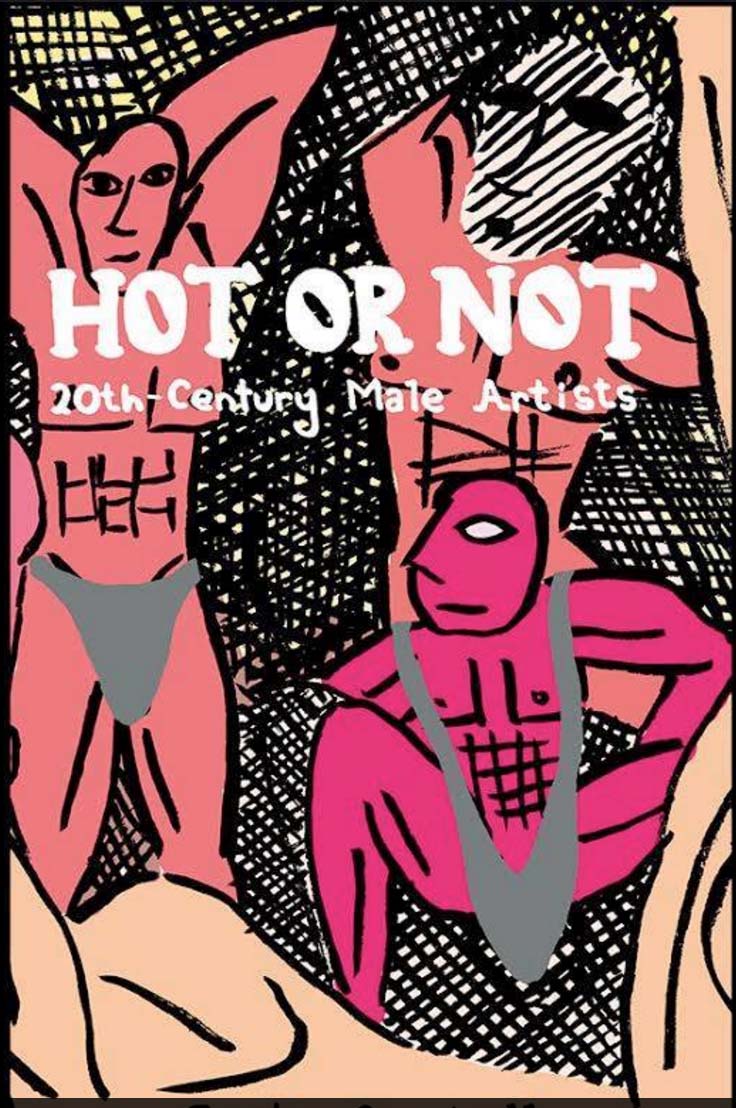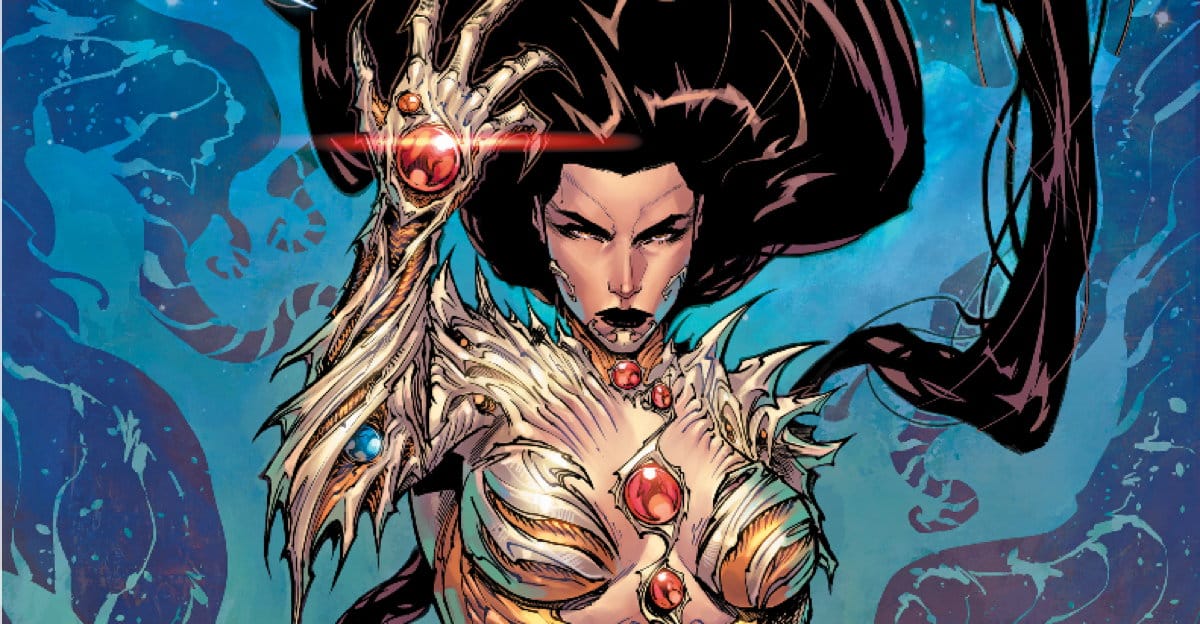I’ve been a big fan of Jessica Campbell’s work since I read her Oily Comics debut My Sincerest Apologies, and what her output lacks in girth it more than makes up for in originality. I don’t think there’s anyone else in comics quite like her, more often than not attuned to offering humor collections with her riffing off a topic than anything necessarily resembling traditional comics, though she does do those as well. Hot Or Not from Koyama Press is the ultimate culmination of her schtick, which frames the illustrated humor section of the book — the main point of the book — between two paneled comics segments of Campbell conducting a tour of an art museum.
As the tour takes over from the action, it becomes a rapid-fire monologue on page by Campbell, riffing through various artists, some important, some obscure, some just Canadian, and reframing their work in context of their sex appeal. Campbell reduces it to a formula that gets funnier with the repetition — she reproduces famous artwork in her own crude style and gets laughs from that, uses the artwork to decipher whether the artist is hot, and then offers her drawn portrait of the artist with some sort of ridiculing pronouncement of the hotness or the notness that the artist might exude, thus megating the artist’s work, as well as his whole person, based on his appearance. Good art, bad art, it all gets measured against the physical attractiveness.
This might be one of the best ways to learn about art I’ve encountered, since what Campbell is doing in her analysis is turning the tables on a parade of self-involved misogynists who routinely treat women the same. Okay, I admit, I’m vastly generalizing with that, but if the Warhol drawing of a shoe fits … you get the idea. I’m just getting into the spirit of one of my favorite traits about Campbell, or at least her work — the assured fierceness.
A few weeks ago, I reviewed Joann Sfar’s Pascin, and I’m struck by how Campbell’s book is the antidote to that. I liked it well enough, but I liked it despite Pascin, who comes off as yet another wounded, intense male who acts out over-dramatically about how hard it is to live life, and uses women mainly as a vehicles to try to soothe his own pain. This is typical of the type of artist who becomes celebrated, and coming at it from the point of view of Campbell’s book, I echo that it is a tiresome obsession we men have, portraying our unlikable, whiny art heroes, trying to justify their nasty and often pathetic behavior and general attitude toward women as acceptable because of the great creative achievements they gave to the world at great sacrifice of their souls, hurting so deeply in order to plunge into the depths of the truth and regurgitate it onto a canvas and only understand thanks to them.
Campbell is having none of that bullshit and I’m completely with her on this.









Comments are closed.